The new temples of a twilight age
Updated: 2013-12-27 08:51
By Sun Li in Shaxian, Fujian province and Zheng Jinran in Yanjiao, Hebei province (China Daily)
|
||||||||
Family fortunes
Cao Jinji is one of the resident who turned to Buddhism after living in the home for awhile.
The 93-year-old said her vegetarian diet and Buddhist meditations have given her a sense of inner peace and she has been amazed by her daughter-in-law's change of attitude toward her.
Cao said she moved to the home more than a decade ago, because her son and daughter-in-law paid her little respect and often quarreled with her. Her daughter-in-law hadn't called her "mother" for several decades.
"But, one Spring Festival when my daughter-in-law visited me here, her expression betrayed her surprise. She had never thought that people would treat an elderly stranger so well," Cao said.
"She felt guilty and asked me to stay with the family for a short time", she said, adding that she initially thought the offer was some kind of "plot".
After Shi assured Cao that would be picked up three days later, the elderly lady paid a short visit to her old home. Her daughter-in-law treated her with respect and even started calling her "mother" once again.
"Although our relationship has softened, I still prefer to live in the nursing home because this place was the key factor that changed my daughter-in-law's attitude," Cao said.
Li Laifeng, a retired doctor at a hospital in Shaxian, has served as the home's voluntary medical officer since it opened in 1999.
A Buddhist herself, Li offered her services in accordance with the concept of mercy highlighted by the religion. She believes that the surrounding environment promotes longevity.
"The temple sits on these green hills. The air is fresh and the water is clean. Those factors make a major contribution to the good health of the residents," she said.
Li conducts checkups on the residents every week and said most of the octogenarians retain their mental faculties, and she usually only has to treat common ailments such as coughs and the occasional bout of flu. If a resident becomes seriously ill, they are sent to the county hospital.
At present the home's sickbay consists of just one room and Li is hoping to find more space for medical care to allow her to isolate patients with infectious conditions, such as flu, and prevent the spread of the illness.
Jixiang Temple was established by the Shi Zhaochan, the abbot, as a result of his falling ill. In 1994, he was diagnosed with bone cancer, which the doctor said was incurable.
In great pain, the abbot prayed every day and pledged to build a nursing home for 100 people if he was cured. A few months later, the cancer miraculously disappeared and so Shi Zhaochan and Shi Nengqing traveled to Shanghai, Guangzhou and Hong Kong to raise funds and fulfill his promise, a process that took several years.
"Shi Nengqing and I are getting older, so I plan to ask monks from other cities to come to the county and run the nursing home. We are planning to expand and so we are raising funds to pave a smooth path for our successors," said Shi Zhaochan.
Contact the authors atsunli@chinadaily.com.cn and zhengjinran@chinadaily.com.cn

 LeBron James is AP's Male Athlete of the Year
LeBron James is AP's Male Athlete of the Year
 Year-end horse-ride parade California
Year-end horse-ride parade California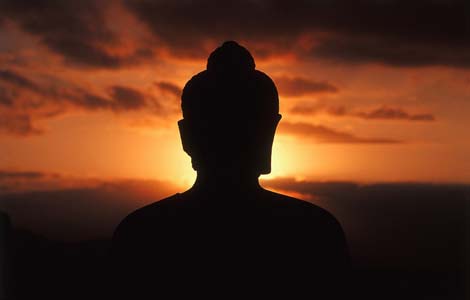
 Pick your new year sunrise
Pick your new year sunrise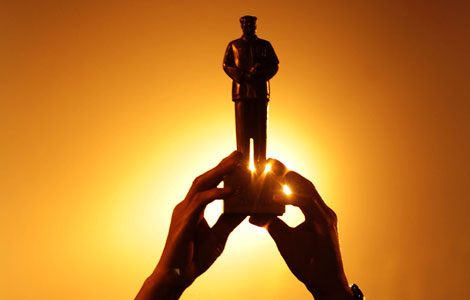
 Memorial a big draw on Mao's birthday
Memorial a big draw on Mao's birthday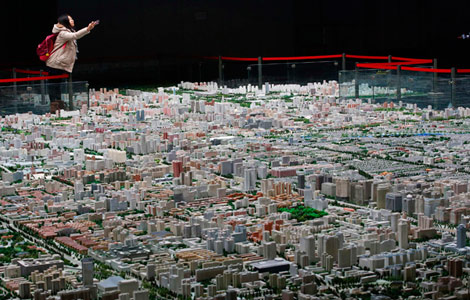
 China's urbanization rate to hit 60% by 2018
China's urbanization rate to hit 60% by 2018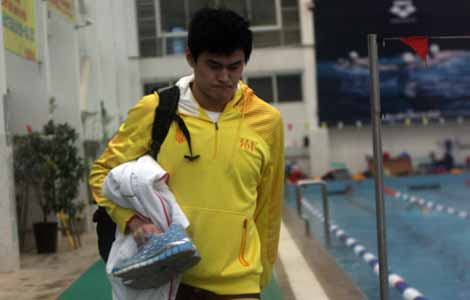
 Oly champion resumes training after scandal
Oly champion resumes training after scandal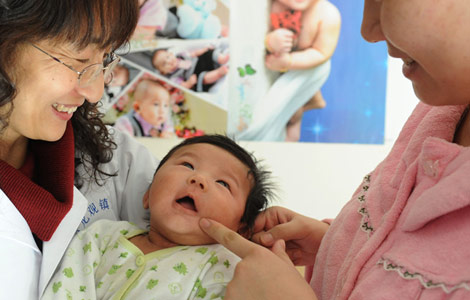
 Private clinics take on new role
Private clinics take on new role
 Obama thanks troops for service
Obama thanks troops for service
Most Viewed
Editor's Picks

|

|

|

|

|

|
Today's Top News
2013 sees loss of US credibility
Huge potential seen for preschool English in China
Chinese university leaders round-up ideas in Texas
Anger over Abe's World War II shrine visit
US sends missiles, drones to Iraq
US airbase relocation approved
Accounting fraud chills US investors
'An overall view' on Mao required
US Weekly

|

|






